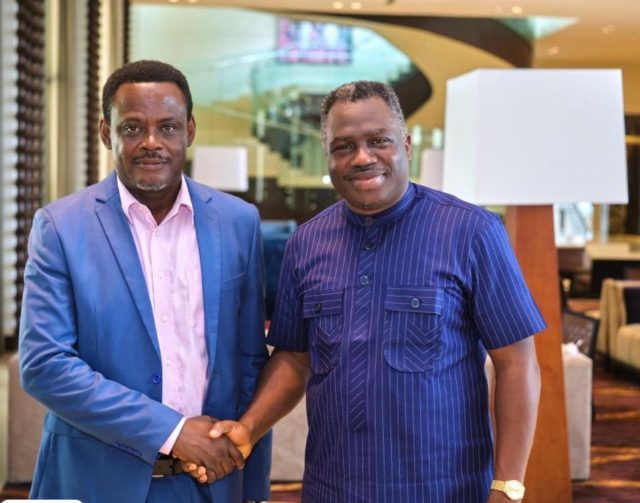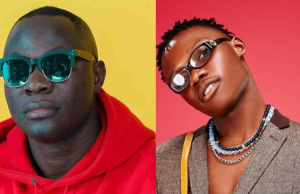I hope this letter finds you in high spirits and good health. I sincerely hope that by His providential grace, your family is also doing well.
I am penning down this article to extend my warmest congratulations on the remarkable effort and effective strategy employed by the Ghana Police Service under your supervision in protecting lives and property in the country.
Sir, as a freelance journalist who closely observes societal predicaments impacting community wellness and safety, words cannot adequately emphasize how significant it is for Ghanaians to feel safe and enjoy peace and tranquillity within their own neighbourhoods both day and night.
It is an undeniable fact that your pragmatic measures by deploying police personnel across the country to circumvent any unforeseen circumstances can never be underestimated.
Sir, since you ascended to the highest position of the police service, you have changed the face of Ghana by improving coordination between police officers, which has undeniably played a very pivotal role in maintaining law and order across the country.
Sir, there’s a good aphorism that says, “We must celebrate our heroes when alive and not when they’re dead because we all know that life is fleeting and death is inevitable.” I can’t imagine the daily stress of police officers potentially facing death, if not bodily injuries, on the field of work. They put on their uniforms not knowing if they will take them off at night—bullets or not—nor even by themselves, which makes one wonder why the police service closes its eyes to reward its heroes when alive rather than when they’re dead.
Sir, a hero like Mr. Emmanuel Ekow Addison, an Ex-police officer who saved the life of the current Vice President of Liberia, has remained relatively unsung.
Mr. Addison, as an officer in the police service, completed seemingly impossible tasks and persevered through immense adversity. The common denominator among all our heroes like Mr. Ekow Addison has always been that every officer has risked his or her life and fought great battles in the pursuit of protecting the masses.
It is, therefore, at this juncture that I would like to express my deepest disappointment and concern that Ex Police Officer Emmanuel Ekow Addison has not received the recognition he deserves for his act of professionalism 24 years ago. As you may be aware, Officer Addison courageously saved the life of the current Vice President of Liberia from going to jail when he was tagged as an armed robber with four others on Accra-Tema Motorway in the year 2000, a feat that deserves utmost recognition and commendation.
It is unacceptable that such a remarkable display of bravery and dedication to duty has gone unacknowledged by the police leadership. Officer Addison’s selfless act is a testament to the highest standards of policing and deserves to be celebrated.
I respectfully urge you to take the necessary action to recognize and honour Officer Addison’s heroism. His legacy and contributions to the force must not be forgotten. Selah!
Read below the heartening story.
HOW GHANAIAN POLICE CID SAVED LIBERIA’S VICE PRESIDENT FROM GOING TO JAIL.
The Liberian Vice President, Jeremiah Koung, recently came to Ghana. His mission in the country was inspired by his desire to locate a good Samaritan — a Ghanaian police officer, whose professional conduct aided him and his five other friends to escape a jail term in Ghana some 24 years ago.
The Current Vice President of Liberia, H.E. Jeremiah Koung and his colleagues were wrongly labelled and arrested as armed robbers. He came to Ghana to show appreciation to the ex-police officer, Mr. Emmanuel Ekow Addison.
Giving an account of the incident in an interview on the AM Show on Accra-based Joy News, the Vice President divulged that he used to be a businessman before dabbling, muddling, and venturing into politics in his youthful days.
He detailed that in the late 90s, he used to come to Togo together with his friends to purchase cars to sell in his home country, which at the time, was experiencing a civil war.
He said in one of their trips on business, they came with a Côte d’Ivoire-operated transport company called STIF to Ghana. Their final destination was Togo. However, they made a stopover in Ghana to buy some gas cylinders to sell in their country.
Mr Koung disclosed that the STIF bus got to Ghana about 1 am to 2 am from Danale in Côte d’Ivoire.
He said because it was 2 am, one of his friends suggested that instead of going to book a hotel, they should rather find an entertainment centre to beat time so that when the day breaks, they can go and buy their cylinders. All agreed.
He stressed that they found one entertainment centre called “Yakiki.” At about 4 am, which was Sunday, he then remembered that shops in Ghana do not open, hence suggesting to his friends that they should continue their journey to Togo to get the cars but on their return, they can then buy their gas cylinders in Ghana.
He said when they left the premises of Yakiki, they saw a mini Nissan bus, a 16-seater, parked outside. He explained that they signalled the driver and told him to take them to Togo and that they would pay for all the seats.
Mr. Koung continued that they had also brought one Togolese driver who they usually contracted to help them drive the cars they bought to Liberia with them.
He said when they got to the bus, they saw two guys already seated but they thought they were the driver’s conductors.
He explained that when the bus moved because they were already tired after partying and taking some “beer,” they all lapsed into sleep with the exception of the Togolese guy, a Muslim, who did not taste any alcohol.
He said after some time on the road, he heard the Togolese guy shouting “These are criminals,” repeating it ample times, hence waking all of them up.
Mr. Koung narrated that they all got up and luckily for them, one of his friends was a former military person who took part in Liberia’s war so he confronted the guys and told them he was not afraid of their guns and that they should fire their guns and nothing will happen to him.
He said they overpowered them, causing their attackers to rather take to their heels.
According to him, when they were asleep in the bus, the driver and the two guys whom they mistook as conductors started having conversations in Twi, discussing whether to start the attack at the point they had reached on the journey or to wait a little, to which the driver told them to wait a little bit since where they were was not secured enough for the operation. But fortunately, Mr. Koung explained, the Togolese guy understood the Twi, hence raising the alarm.
He explained that after the guys bolted, he realized that the driver left the key in the ignition. He said he told one of his friends to start the car and turn back so that they could go to the nearest police station to report the incident.
Unknown to them, he said, the two guys who were with the driver and bolted had gone to the nearby Naval Base to lodge complaints that some Liberians were robbing a Ghanaian driver.
Mr. Koung said when they were in the process of moving the car onto the road, the Naval personnel got to the scene and misconstrued their attempt, they were considered armed robbers, and hence Naval personnel started firing gunshots, which caused them to run in different directions for cover.
Unfortunately, he said, the Togolese guy and three suspects were arrested and almost lynched but they were detained at Fishing Harbour Police Station, with the Togolese guy losing two of his teeth. Similarly, he said, his Liberian friend also sustained a deep cut on his head.
He said he and one of his friends managed to escape arrest into the bushes, stressing that because the weather was still dark, they remained in the bush till daybreak.
Mr. Koung added that when the day broke, they were able to find their way to the Ashaiman police station where the case was referred to the Criminal Investigation Department (CID), which Mr. Emmanuel Ekow Addison took the responsibility to handle.
He explained that Mr. Addison then followed them to the crime scene and when they got there, people around told them about the robbery incident, including the Togolese and his friend who were arrested by the Naval officers.
He said Mr Addison took them to the Naval base to inquire about the incident, upon which one of the officers confirmed and told them the suspects had been taken to the Fishing Port police station.
Mr Koung added that they followed up with the Fishing Port police station and when Mr Addison said he had come to follow up on the incident and introduced them as those who came to report the incident, he (Mr Koung, now the vice president of Liberia) and his friend were also handcuffed and put behind bars. They were considered escapees from the robbery incident.
He said Mr. Addison therefore had to go back to his superiors to report what had transpired at the Fishing Port police station. That, he indicated, after the intervention of Mr. Addison’s boss, they were transferred to the Ashaiman police station.
To prove that they were businessmen, he explained, Mr Addison asked them to show him the money they were going to use to buy the cars in Togo.
He added that he was initially hesitant to disclose it because he was in the mood of trepidation that he would lose the money to the police. He further explained that they had buried their money in the bushes where they went to hide after the robbery incident took place, a sum of US$40000.
However, he said, he had a change of mind about disclosing the location of the money after spending a day in the Ashaiman police cells. That was after he had inquired from some of the inmates about how long they had been there and realized some had spent years there.
Mr. Koung said he told Mr. Addison about where they kept their money and they went to pick it up. For him, the money was the evidence that played a major role in their release.
He explained that upon a series of interrogations, they were found innocent of the crime and their money was handed over to them.
He said he decided to give Mr. Addison US$1000 but he rejected the money, so he felt maybe it was too small, so he added another one thousand, which Mr. Addison again rejected.
He said he told his friends that they should top up the amount, to which they added another one thousand dollars to it.
Mr Koung said Mr Addison rejected the US$3000 and told them he didn’t help them because of their money and that he was doing his job as a police CID.
For him, what Mr. Addison did gave him the shock of his life and since he returned to Liberia, he has been trying to locate him to appreciate him for what he did for him and his friends.
Unfortunately, he said, he did not know the full name of Mr Addison at the time and since it’s been many years since the incident took place, it was difficult to find him.
The Liberian Vice President, who appeared on the show together with Mr Addison, expressed his gratitude to the Ghanaian police officer for his act of professionalism.
By: Lawrence Odoom (Freelance journalist)
Contact: 0272626466 / 0245110013
















